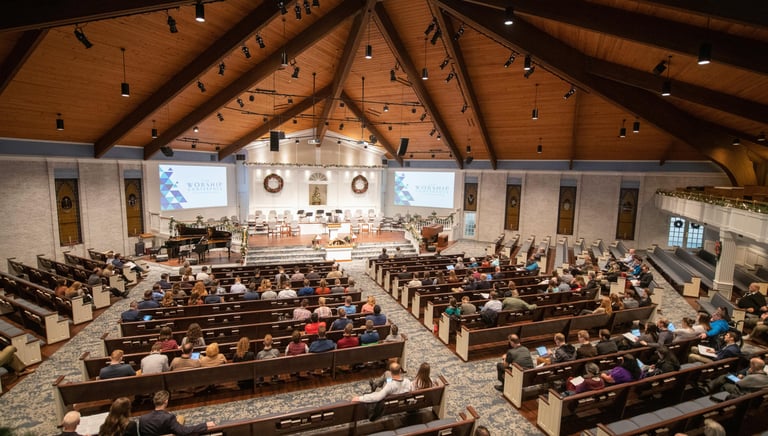Reach Out
Every Good Deed
6 "Now I say this: the one who sows sparingly will also reap sparingly, and the one who sows generously will also reap generously.
7 Each one must do just as he has decided in his heart, not reluctantly or under compulsion, for God loves a cheerful giver.
8 And God is able to make all grace overflow to you, so that, always having all sufficiency in everything, you may have an abundance for every good deed..." (2 Corinthians 9:6-8, NASB)


When the Church faithful gather together their needs are brought to the ministry staff for prayer.
Some needs are simply outside the scope of what the ministry is capable, or even designed, to provide; practical, worldly concerns that the ministry may not be adequately equipped to provide. The list of needs is never ending, based on what it is and whether the ministry can take ownership of it - or not.
Christians who own businesses can bridge that gap as an organized, powerful force that works with the existing ministry structure in diverse ways, solving practical, diverse needs through a network of willing owners and lay volunteers.
Their boundaries may not be limitless, but they can have a sizable impact, which would include tapping lay volunteers as needed.
This is clearly and decisively a commitment, a network of organized businesses willing to incorporate a relationship with a ministry (theirs, others) to perform this necessary function.
The following is a brief sampling of factors that a business person can bring to satisfy the need:
Money
It's what comes to everyone's mind first, but it's hardly its primary contribution to the list. It does have its place, and it can be a hefty one.
The ministry as a "storehouse" model is limited, ordinarily focused on the needs of the ministry and the poor and needy it serves through tithes and offerings.
When atypical needs exceed those receipts, the ministry asks its congregation for additional offerings to bridge the financial gap. Many ministries generate income by other methods, too, similar to a business model, to achieve their goals.
The burden to seek alternative funding has been necessary with the absence of Christian Business as an organized means of funding the ministry.
Networking
Business people know other business people, who know other business people. There is an instant network of resources.
Authority and Power
They have been given dominion over that which they are responsible stewards. They know how to wield either or both with purpose and effectiveness.
Leadership
This tenet of ownership recognizes a need for and initiates a correct response to a situation, despite resistance, to the benefit of those it will affect, over an established period of time.
Decision Making
Business people have decision-making prowess. Details will be thought out. The process will be more logical, practical and efficient.
Skills and Equipment
Each business produces a product. How can that product, or the manufacturing of that product, or the skills, tools and vehicles to make that product, be useful?
Employees
The labor force can be tapped for tasks, either paid or through volunteerism.
Jobs
Hiring an unemployed individual for an open position is easy. A harder choice is committing to hiring those who aren't an easy hire but need investment.
Wherewithal
The whole of a business person is greater than the sum of his or her parts, a priceless ingredient of a solid solution.
Fiscal Understanding
A business owner's default approach is to gain the most while spending the least. This skill factors into the whole of a business person is greater than the sum of his or her parts, a priceless addition to a solid solution.
BUILDING THE ANSWER
This undertaking is not small. In each community, multiple ministries of diverse doctrines and business owners will create a working structure of operation.
It begins with coming together, identifying who is on the team, what they can provide (physical, cost limits, etc.), a screening process to vet requests, management of volunteers, and...
This is not another thing added to an already busy week. It is answering the call, the need of the community, that we serve. It is the formation of a new and resounding arm of the Christian Church.
REACH
reach /ritʃ/, verb
to stretch or extend so as to touch or meet


How The Church and
Christian Business
Can Solve Needs Together
OUT
out /aʊt/, adverb
away from, or not in, the normal or usual place, position, state, etc.
Regarding charitable giving:
For a business to "give it", it must first "have it".
Business expenditures used for benevolent purposes
come from the profit margin, from what it has to give.
A business should not use funds for charity that it does not have.
A desire to participate in giving is motivation to make any adjustments necessary so that giving is done in a fiscally correct way.
Confidentiality Promise
Our affiliation with your business, its name and all relevant details of your project are kept strictly confidential. Names, likenesses, business images, or any other identification of your business will not be used for any purpose without explicit authorization to do so.
contact information
heckman@heckwithmybiz.com
574 850 1090
© 2025. Heckman Consulting, LLC.
All rights reserved.
Substack
PO Box 74
Mishawaka IN 46546 0074
